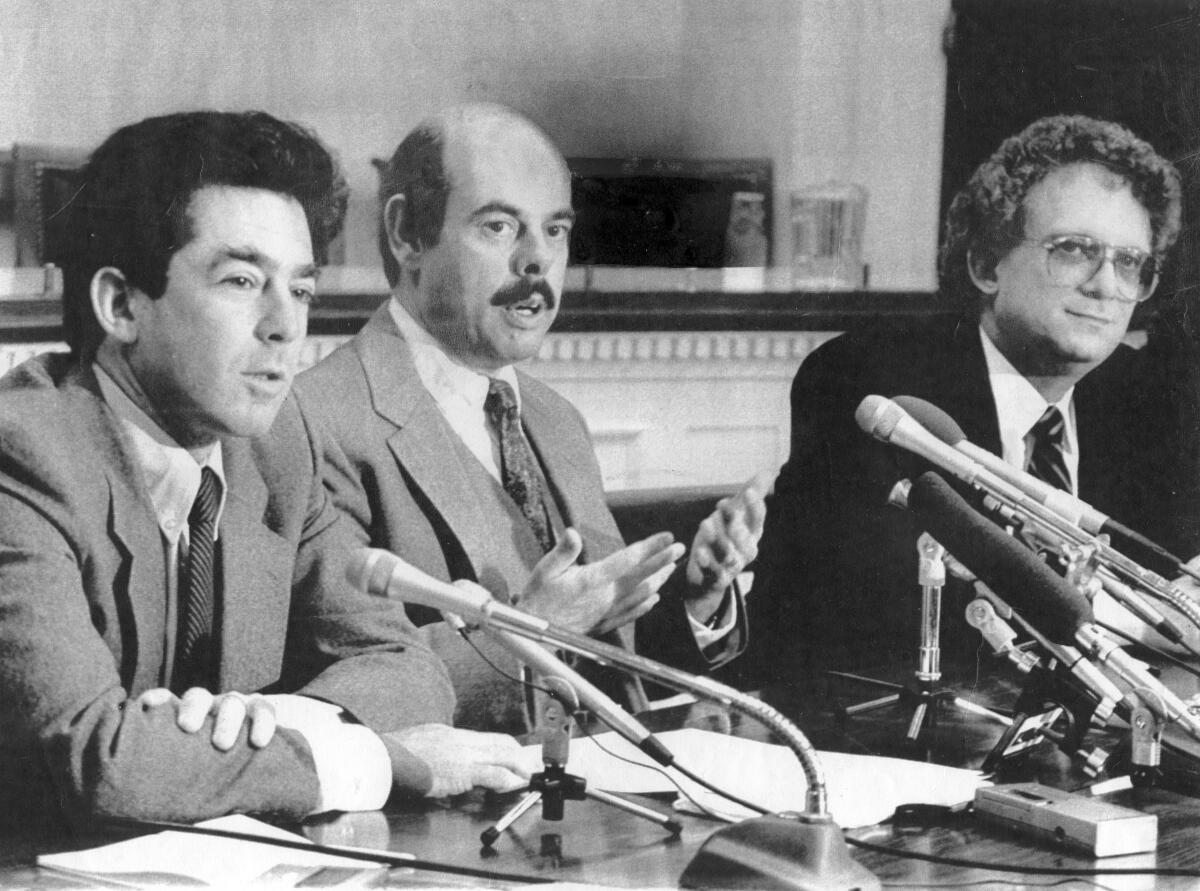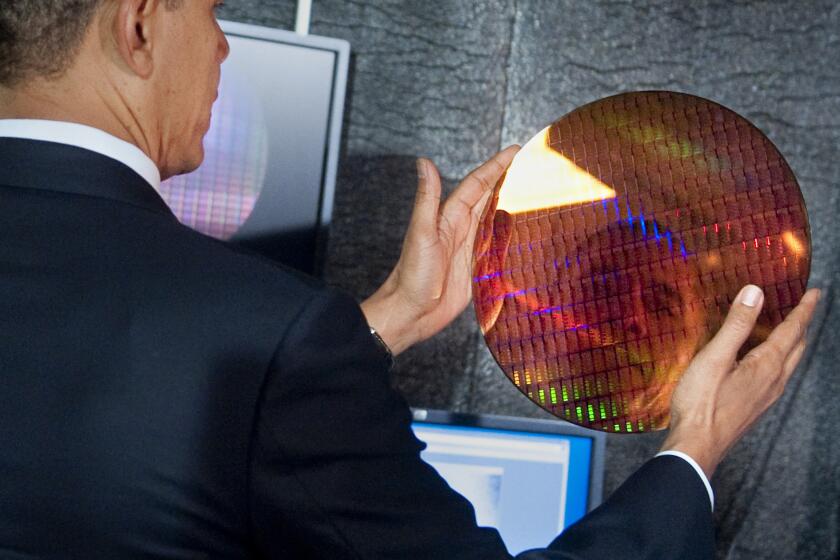He was a California kingmaker and political genius. But Michael Berman preferred anonymity

- Share via
A visit with Michael Berman, the political savant and California kingmaker who died last week, was a throwback to another time.
He worked from a shabby office, blinds drawn to thwart any ray of sunlight. A blue pall of smoke hung from the ceiling, like a nicotine curtain.
Lunch might have involved a distilled drink, or two.
But it’s not Berman’s defiantly unhealthy lifestyle that stood out among the tanned and beautiful who surrounded him in the glossy climes of Beverly Hills and the Westside.
Rather, it was his extraordinary political acumen, coupled with a passion for anonymity.
It was a striking trait decades ago, when Berman was at the height of his powers as the operational brains behind Los Angeles’ powerful Berman-Waxman political machine.
It is all the more notable in today’s era of relentless self-promotion, when even the most middling political strategist turns up at postelection seminars, in podcasts and on the gaseous cable talk-show circuit.
Berman spoke sparingly to reporters and rarely agreed to be identified when he did so. After news broke Saturday night of his passing at age 75, the L.A. Times scrambled to find a photograph to illustrate Berman’s obituary.
There was none to be had.
“He ran stuff,” said Sherry Bebitch Jeffe, a retired USC political science professor and longtime friend of Berman. “He didn’t run for stuff.”
Michael Berman, who shaped California politics for generations as the mastermind of Los Angeles’ vaunted “Berman-Waxman Political Machine,” died Friday.
Before time and technique overtook it, the Berman-Waxman machine was an irresistible force in California politics, grooming candidates for positions from City Hall to Sacramento to Washington.
The principals were Michael Berman; his older brother, Howard; and their former colleague in the UCLA Young Democrats, Henry Waxman.
“Machine” is a word they loathed.
“It connotes patronage and corruption,” said Waxman, who became one of country’s most prolific and influential liberal lawmakers during 40 years in Congress. “That was not what we were all about.”
The Berman-Waxman machine — and we’ll stick with that appellation, given its currency — didn’t revolve around greased palms or leveraging public services, like garbage pickup, in exchange for votes. Rather, its forte was campaigns and political communication. And it was years ahead of its time.
Michael Berman and his cohorts were pioneers in the bundling of campaign cash to elect like-minded ideological allies as well as the art of refined targeting and voter persuasion. It is standard political practice today, but one that was relatively new and quite labor-intensive decades ago.
Tom Epstein recalled how it worked in a 1977 special election for state Assembly. After data were hand-collected from voter records, canvassers received specific demographic information to use as they knocked on doors in West L.A. and Santa Monica.
“We were given four color-coded brochures with different photos and messages targeted at different audiences,” said Epstein, a campaign staffer in the Assembly contest, who went on to work as a political strategist in the Clinton White House.
“One was for older people,” Epstein recalled, “one for younger people, one for Republicans and one for middle-aged Democrats.”
It was decidedly low-tech, but effective. Democrat Mel Levine won the race and eventually served alongside Waxman and Howard Berman in Congress.
Beyond campaign consulting, Michael Berman was long the Democrats’ indispensable man in the highly partisan process of redistricting, the once-a-decade drawing of political maps that follows each census. With an encyclopedic knowledge of statewide population and voting patterns, he helped the party bolster its power in Washington and Sacramento.
“There’s no way to trace it all back to him,” former Democratic Party chairman John Burton said. “But we know.”
Of course, Berman was hardly infallible.
Before his brother moved to Congress in 1983, he helped wage a costly, ugly and ultimately unsuccessful fight to install Howard Berman as Assembly speaker, which tore the Legislature apart.
In 1988, a leaked strategy memo, in which Michael Berman made racist and sexist comments among a number of insults, helped undermine the mayoral prospects of then-Los Angeles City Councilman Zev Yaroslavsky.
Berman, who did not believe in polling, suffered the consequences when he struck out in a pair of 1992 U.S. Senate races. (Levine and Gray Davis were defeated by Barbara Boxer and Dianne Feinstein, respectively, in the Democratic primaries).
In perhaps the greatest indignity, Howard Berman lost his place in Congress when he and fellow Democrat Brad Sherman squared off in 2012 for a newly drawn seat in the San Fernando Valley. By then, California voters had taken redistricting out of the hands of politicians, and the likes of Michael Berman, and given it over to a nonpartisan citizens panel.
Democrats drawn by Oregon’s tech jobs and nature have made the state solidly blue. It’s part of a transformation that remade the West and recast the fight for the White House.
Whatever Michael Berman thought of those highs and lows remained unspoken — for public consumption, anyway.
“He saw no percentage in getting his face out there,” said Bill Boyarsky, a former L.A. Times political writer and city editor, who often sparred with Berman.
“He saw no percentage in being nice to a reporter, doing a reporter any favor or having any dealings with the press,” said Boyarsky, who hosts a podcast, “Inside Golden State Politics,” with Jeffe. “It wasn’t of any value to him.”
What Berman cared about was winning elections, which, for a long time, he did more often than not.
More to Read
Get the latest from Mark Z. Barabak
Focusing on politics out West, from the Golden Gate to the U.S. Capitol.
You may occasionally receive promotional content from the Los Angeles Times.












